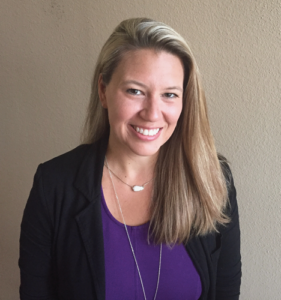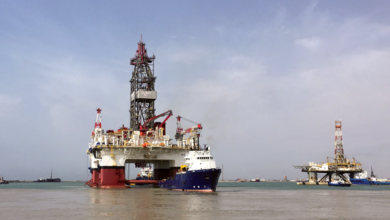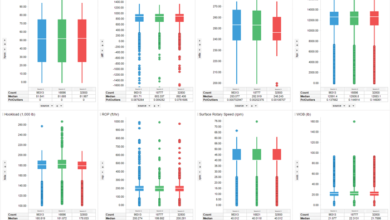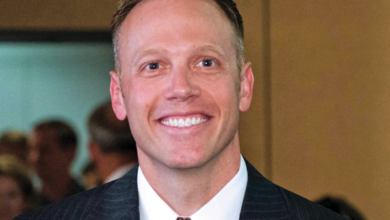Perspectives: Evelyn Baldwin, Maersk Training: Drilling industry should integrate crew resource management training into all well control curriculums
By Alex Endress, Editorial Coordinator

As the drilling industry gains a better understanding of human factors and how they impact safety, companies have increasingly turned to outside industries for the right expertise to implement crew resource management (CRM). Evelyn Baldwin, now CRM Lead Instructor for Maersk Training, is one such example.
After graduating in 2004 from the University of Texas at Austin with a Bachelor’s degree in Physics, Ms Baldwin joined the United Space Alliance (USA). USA is the primary spaceflight operations company responsible for NASA’s mission design and planning. In her role as Technical Instructor, she was responsible for teaching CRM to astronauts and flight controllers as they were trained to operate the communications and tracking system onboard the International Space Station.
In this CRM program, space flight controllers and astronauts work together on simulators to accomplish day-to-day operations and to react to emergency scenarios. The latter refers to “experiences our people at NASA hopefully wouldn’t see on an average day on the space station, such as how to respond to a fire,” Ms Baldwin said. Flight controllers and astronauts are required to go through the training at least once every six months.
CRM refers to non-technical skills employees need to succeed under high-risk and high-stress situations: communication, situation awareness, leadership, teamwork and logical decision-making. “These are skills needed to address rare and critical incidents,” Ms Baldwin said. “On the space station, we hope the people onboard never see a fire, for instance. Similarly, the driller on a drilling rig may only see one or two well control incidents in their whole career, so these skills must be learned through training in advance of a possible incident.”
That’s exactly the type of thinking that she’s now teaching at Maersk Training. “We can better train our crews for the incidents that cost our industry money and, more importantly, human lives.” Especially since Macondo, the drilling industry has made significant progress in implementing CRM. Ms Baldwin cited the International Association of Oil and Gas Producers’ (IOGP) 501 and 502 recommendations as examples of such progress. However, much more can still be done, she urged.
“We have been moving in the right direction for the past few years, but crew resource management training is still not as well accepted in oil and gas like it is in aviation and aerospace,” Ms Baldwin said. She hopes that more companies will start building CRM into their competency programs once they begin to see improved safety performance from the early adopters. “It is uncomfortable at first because you are asking people to grow outside of their comfort zones and to do things differently than they are used to, but when they see that it works, they are going to be more accepting of it.”
At Maersk Training, which she joined in 2015, Ms Baldwin teaches standard IADC WellSharp Well Control courses, as well as Maersk Training’s Advanced Well Control Class using the company’s high-fidelity drilling simulator. “Advanced Well Control allows crews to focus on crew resource management and on applying the technical skills and crew resource management skills in the simulator,” she said, noting that simulations help crews learn how to work as a team under high-pressure situations. “What crews see and remember from those experiences in the high-fidelity simulator is as close to real life as possible. When they see something similar on the rig, they will be better equipped to apply what they’ve learned.”
Ms Baldwin is further lending her CRM expertise to the IADC Workforce Development Committee, which is working on an enhanced IADC WellSharp-accredited well control course. CRM training will first be incorporated into the supervisor and driller levels because “these are the people that can help lead by example.” In connection with this project, the committee is also developing a CRM training course for instructors of the enhanced well control course. Currently both courses are tentatively set to launch in January 2018.
Looking to the future, Ms Baldwin said she hopes that the industry will work to incorporate more aspects of CRM training into well control curriculums for all employees. She also urged the industry to conduct well control training with more frequency beyond the current industry standard of one week every two years.
“It is just not enough time,” she said, pointing to the aerospace and aviation industries, as well as the US military, as having better models. Training in those sectors typically is conducted for one day every six months and always incorporates CRM strategies. This training frequency would likely mean higher costs and require changes in logistics for many companies, but Ms Baldwin said she’s convinced it will lead to better results. “It’s an investment that is hard to quantify, because if you are able to prevent accidents, then they don’t happen and can’t be tracked. The truly catastrophic incidents are rare, but when they do happen, lives are lost.” DC




